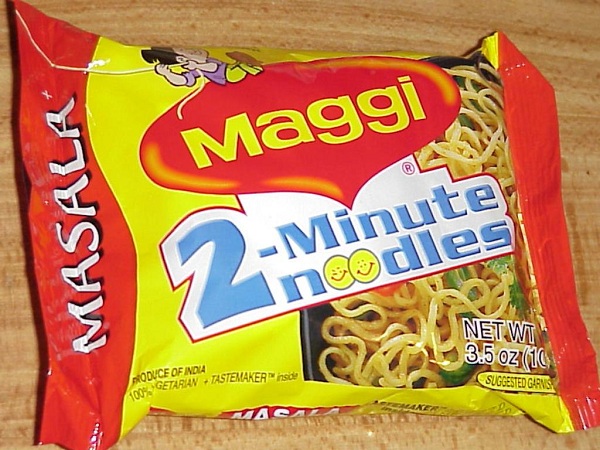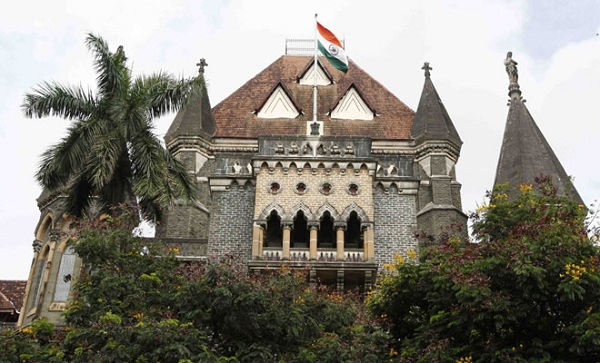
by admin | May 25, 2021 | News
 Mumbai:(IANS) Nestle India got a significant respite on Thursday with the Bombay High Court lifting the ban on the sale of its Maggi instant noodles and ordering fresh tests in three separate labs to ascertain that the product complied with the country’s food safety norms.
Mumbai:(IANS) Nestle India got a significant respite on Thursday with the Bombay High Court lifting the ban on the sale of its Maggi instant noodles and ordering fresh tests in three separate labs to ascertain that the product complied with the country’s food safety norms.
The conditional relief came following a petition filed by Nestle challenging the regulatory order of June 5 for the withdrawal and recall of nine variants of “Maggi Instant Noodles” and “Maggi Oats Masala Noodles with Tastemaker”.
A division bench of Justice V.M. Kanade and Justice B.P. Colabawalla, while ruling that the principles of natural justice were not followed, also directed fresh tests to be conducted on all major Maggi samples by three separate laboratories within the next six weeks, before it can return to the markets.
“We have examined the evidence in great detail. Since the petitioner Nestle has already agreed not to make and sell Maggi until the food authorities are satisfied, we see no reason to allow any relief to food authorities,” Justice Kanade said.
The court directed that five samples of each Maggi noodles variant sent private labs in Punjab, Jaipur and Hyderabad which are recognized by the National Accreditation Board for Testing & Calibration Laboratories.
These samples would be taken from the 750-odd preserved by Nestle after the ban, while a large stock of its products was destroyed by the company after the ban was implemented.
The court specified that only if the lead content was found to be within permissible limits could the company resume its manufacture and sale.
Immediately after the judgement, the stocks of Nestle India surged to the day’s high of Rs.6,545, and eventually closed at Rs.6,356.70, with a gain of Rs.172 or 2.78 percent.
The Food Safety and Standards Authority of India (FSSAI), the industry watchdog, had said in its order that tests conducted on a batch of Maggi were found to contain more-than-permissible levels of lead and high quantities of mono-sodium glutamate (MSG).
Refusing also to stay its own order observing that manufacturing and fresh testing would take time, the bench said the FSSAI ban was imposed without following the due principles of natural justice. It also said the tests were conducted in unauthorised labs.
The court further said that the company itself had stated it would not manufacture and sell Maggi till it secured a clean chit from labs accredited with the food safety regulator.
Nestle was also directed to provide five samples from each Maggi batch for testing by the three labs.
Welcoming the judgement, Nestle India said said in a statement that it would comply with the order for conducting fresh tests on samples and expressed its commitment to working with FSSAI, the Maharashtra FDA and other stakeholders.
The significant ruling came a day after Indian authorities announced that they will seek Rs.640 crore in damages from Nestle India for indulging in what they alleged was “unfair trade practices” and mis-statements pertaining to the popular noodles brands.
The National Consumer Disputes Redressal Commission (NCDRC) is set to hear the case on Friday.
However, the company said recently that more than 2,700 samples of Maggi noodles have already been tested by laboratories in India and abroad in recent months and all have concluded that the lead content was far below permissible limits.
The company also said that five samples tested by the government-accredited referral food laboratory, Central Food Technological Research Institute, Mysuru, on samples sent by the Food and Drug Administration (FDA) of Goa, had also found similar results.
“Maggi noodles made in India have been tested and found to be safe for consumption by the authorities of several countries across the world.”
Among the four divisions of Nestle India, the category of “prepared dishes and cooking aids”, which broadly translate into Maggi, accounted for 31.5 percent of sales in 2014, as per a presentation by the company to analysts.
The Maggi unit also saw a 1.8 percent increase in volumes in 2014 over the previous year and 8.1 percent rise in value at Rs.21.4 billion
Of the remaining divisions, the category of “milk products and nutrition” had the largest share of 47.1 percent, followed by 12.2 percent for “chocolates and confectionery” and 9.2 percent for “beverages”.

by admin | May 25, 2021 | Halal Food, Halal Industries

New Delhi : (IANS) Britain’s Food Standards Authority (FSA) on Wednesday announced that Nestle India’s Maggi noodles, manufactured in India and exported to Britain, were safe to consume and contained lead well within permissible levels.
“The FSA can confirm that results from testing samples of Maggi noodles in the UK have all found that levels of lead in the product is well within European Union (EU) permissible levels and would not be a concern to consumers,” the FSA said on its website.
Britain imports only masala flavour of these noodles, the food authority said, adding that the FSA also tested other variants from the Maggi noodles range.
A total of 900 samples were drawn from Nestle as well as the local authorities in Britain and tested.
“Following an incident in India, where a sample of Maggi noodles was reported to contain high levels of lead, the FSA made the decision to test a selection of Maggi noodles as a precaution,” the food authority said.
India’s food safety regulator had ordered Nestle to withdraw Maggi noodles after some samples were found to contain higher-than-permissible levels of lead — a finding that was rejected by the company, saying its own independent tests suggested otherwise. The company has halted production of Maggi noodles in its factories in India since June 5 and decided to withdraw it from the Indian market.
The Bombay High Court on Tuesday allowed the company to export all varieties of Maggi noodles from India, though the domestic marketing restrictions would continue.

by admin | May 25, 2021 | Corporate, News

Bombay High Court
By A. Mirsab
Mumbai: All the minority commission members who were recently expelled by the BJP-Shiv Sena government in Maharashtra have filed a petition here on Friday against their sacking before the Bombay High Court.
The former members, including vice Chairperson of the commission have contented their sacking as ‘unconstitutional’ and ‘unlawful’ and have prayed for intervention of Bombay High Court to reinstate then on their position till they complete remaining tenure in the office.
The said petition will now come for hearing on Tuesday the 3rd of February.
The petition is signed by Janet Desauza (Former Vice-Chairperson) and other former members Liaqat Ansari, Gulzar Azmi, Majeed Qureshi and Sardar Jaswant Singh. Munaf Hakeem, former Chair Person could not sign the petition due to his unavailability in the city at the time of filing of the petition.
Speaking with TwoCircles.net, Munaf Hakeem said, “Our tenure was secured by the Maharashtra State Minority Commission Act 2004 for 5 years. We cannot be removed in the mid-way without being heard in the matter by giving a reasonable opportunity to present our side”.
Section 4 of the Maharashtra State Minority Commission Act 2004 details term of office and conditions of the services of Chairperson, Vice-Chairperson and Members. This section sets the tenure of them to be five years with a clause ‘Subject to the pleasure of government’.
Apparently the government has acted in restructuring the commission based on this ‘clause’ but the former members are claiming that the government misconceived the meaning of the said clause, according to whom the section has to be read in the light of section 4.
“The government has misunderstood the meaning of ‘pleasure of government’ in a section of the Act by assuming it to be ‘at their will’ whereas it has not observed the subsequent section in the Act that clearly explained in what all conditions a member or vice chair person or chairperson of the commission can be disqualified by the government”, he explained.
Hakeem and all other members in his office were sacked only a week after he had announced of conducting a fresh survey by Tata Institute of Social Science (TISS) on the percentage of Muslims lying in the state’s prison.
Section 5 of the said Act allows state government to disqualify or to discontinue Chair Person or vice Chair Person or any member if he is convicted and sentenced for any offence that involves moral turpitude or he is of unsound mind or an un-discharged solvent or he has been dismissed from service of any state or central government or becomes incapable of acting or he remains absent from three consecutive meetings of the commission without a prior leave.
Hakeem alleges that their sacking did not fit in any of the criteria mentioned in the Act adding, “Neither there was anything to suggest that any of us abused our powers that would have given feeling of continuation of us in the office to be detrimental to the interests of Minorities in the state.”
All the expelled men had more than two years of tenure remaining in the office. Hakeem had two and half years, Janet Desauza had three years where as other members were freshly appointed in September 2014.

 Mumbai:(IANS) Nestle India got a significant respite on Thursday with the Bombay High Court lifting the ban on the sale of its Maggi instant noodles and ordering fresh tests in three separate labs to ascertain that the product complied with the country’s food safety norms.
Mumbai:(IANS) Nestle India got a significant respite on Thursday with the Bombay High Court lifting the ban on the sale of its Maggi instant noodles and ordering fresh tests in three separate labs to ascertain that the product complied with the country’s food safety norms.
